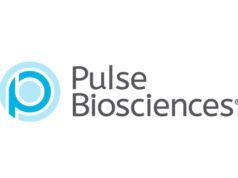
Despite the lack of randomised trials on energy drinks consumption, few case reports on atrial and ventricular arrhythmias as well as on myocardial ischaemia inducted by energy drinks have raised concerns on the safety of these beverages; write Alessandro Capucci and Marco Flori from Clinica di Cardiologia, Università Politecnica delle Marche, Ancona, Italy. Capucci spoke on the subject at a session on Food and Arrhythmias of Venice Arrhythmias 2015 (16‒18 October, Venice, Italy).
Energy drinks are beverages which contain a variable amount of caffeine, taurine, sweeteners and vitamins. They may also contain other stimulants such as guarana or ginseng. The amount of caffeine can vary greatly between different brands of energy drinks. On average, caffeine content per energy drink is modest and comparable to an espresso coffee cup (80mg). Taurine is thought to be a stimulant to a greater extent than caffeine. Conversely, taurine is an organic acid normally present in meat and fish, with a number of fundamental biological roles, including conjugation of bile acids, antioxidation, osmoregulation, membrane stabilisation, and modulation of calcium signaling. Dietary intake is usually up to 200mg/die for non-vegetarian while an energy drink contains on average 1g of taurine, although dietary intake up to 3g have been demonstrated to be safe in healthy people.1
Energy drinks have been an active subset in the soft drinks industry for a long time. Pepsi and Coca-Cola, for instance, were originally marketed as energy boosters. Nevertheless, it was in the late 90’s that energy drinks consumption grew at a faster pace. Market research firm Euromonitor calculated that the global energy drink market was worth US$3.8 billion in 1999 and this value grew to US$27.5 billion in 2013, with Red Bull and Monster as the two best-selling brands in 2012, accounting for nearly 80% of US energy drink sales. In 2011, the European Food Safety Authority commissioned a study to gather consumption data for energy drinks in 16 countries of the European Union. They found that 68% of adolescents (aged 10–18 years old), 30% of adults, and 18% of children (older than 10 years) consumed energy drinks.
Despite the lack of randomised trials on energy drinks consumption, few case reports on atrial and ventricular arrhythmias as well as on myocardial ischaemia inducted by energy drinks raised concerns on the safety of these beverages.
An analysis of US National Poison Data System2 reported 4,854 (0,2%) phone calls for energy drink exposure, between 1 October 2010 and 30 September 2011. Of 1,480 non-alcoholic energy drink cases, 50.7% were children
Ventricular arrhythmias and sudden death related to energy drink consumption have been reported. A 28-year-old-man was admitted to an emergency department with ventricular tachycardia. The patient had drunk three cans of 250-mL energy drink five hours before a basketball match.3 Another case was a 45-year-old man who underwent repair of tetralogy of Fallot at the age of five years. He reported to his cardiologist because of his first ICD shock. He awoke tired for an early workday and consumed three Red Bull energy drinks over three to four hours. The ICD shock occurred within 30 minutes after he finished the third drink.4
Moreover, three recent reports suggest that energy drinks can not only trigger cardiac events—but much like an exercise test or an adrenaline or flecainide‐challenge—can unmask an underlying primary pathogenic disorder, such as Long QT (LQTS) or Brugada syndrome.5
Atrial arrhythmias may be triggered as well by energy drinks. The cases of two young boys with no structural heart disease and atrial fibrillation after energy drink consumption have been reported.6
Energy drinks may also play a role in myocardial ischaemia: detrimental effects of energy drink consumption on platelet and endothelial function was tested on 50 healthy volunteers. Platelet aggregation and endothelial function were tested before, and one hour after, the consumption of 250 mL (one can) of a sugar-free energy drink. Compared with baseline values, there was a significant increase in platelet aggregation and decrease in endothelial function following energy drink consumption.7
There are some reports of acute coronary syndrome and even ST segment elevation myocardial infarction (STEMI) after energy drink overconsumption:8 a case of a 26 year-old male with chest pain admitted to an emergency department after drinking his usual quantity (about 4L) of energy drinks. The patient had inferior STEMI and underwent cardiac catheterisation and primary percutaneous coronary intervention on occluded circumflex coronary artery. Shlomo HI et al reported a case of a 24-year-old Caucasian man who presented to the emergency room with a one-hour history of crushing chest pain, nausea, and vomiting after consuming about 20 cans of energy drink. Patient presented with widespread ST segment elevation and developed wide QRS tachycardia and ventricular fibrillation resulting in arrhythmic death.
Energy drinks are used worldwide, but are they dangerous to some extent? The main reasons why energy drinks may have deleterious effects lie in the way how they are consumed, since they are frequently mixed with alcohol and stimulant drugs. Moreover, energy drinks overconsumption is not rare and it may lead to caffeine intoxication. When children are exposed to energy drinks they have a higher probability of adverse events. Additionally, energy drinks toxicity may be enhanced in the presence of underlying cardiac disease.
For these reasons, details on the possible cardiac health issues should be informed and main health associations should also discuss and point out the possible limitations to consumption of these popular beverages.
References
1. Shao A, Hathcock JN Risk assessment for the amino acids taurine, L-glutamine and L-arginine. Regul Toxicol Pharmacol. 2008
2. SeifertSM et al, Clin Toxicol 2013;51(7):566‒74
3. Avci S et al, Am J Emerg Med 2013;31(11):1624.e3‒4. doi: 10.1016/j.ajem.2013.06.031. Epub 2013 Jul 27
4. Ward AE et al, Am J Cardiol 2014;114(7):1124‒5
5. Gray B et al, Int J Cardiol 2012;159(1):77‒8. doi: 10.1016/j.ijcard.2012.05.121. Epub 2012 Jun 15
6. Izquierdo Fos I et al, An Pediatr 2012;77(6):417‒9
7. Worthley MI et al, Am J Med 2010;123(2):184‒7
8. Lippi G et al, Energy Drinks and Myocardial Ischemia: A Review of Case Reports. Cardiovasc Toxicol. 2015 Aug 30
Alessandro Capucci and Marco Flori are from Clinica di Cardiologia, Università Politecnica delle Marche, Ancona, Italy









